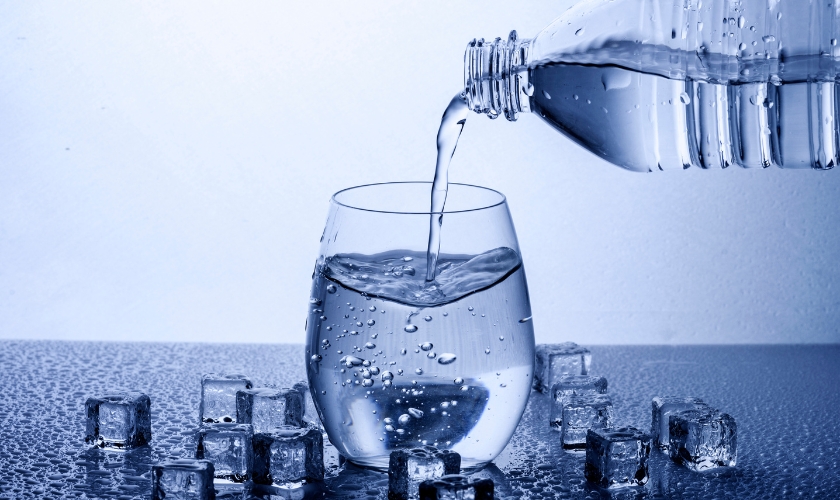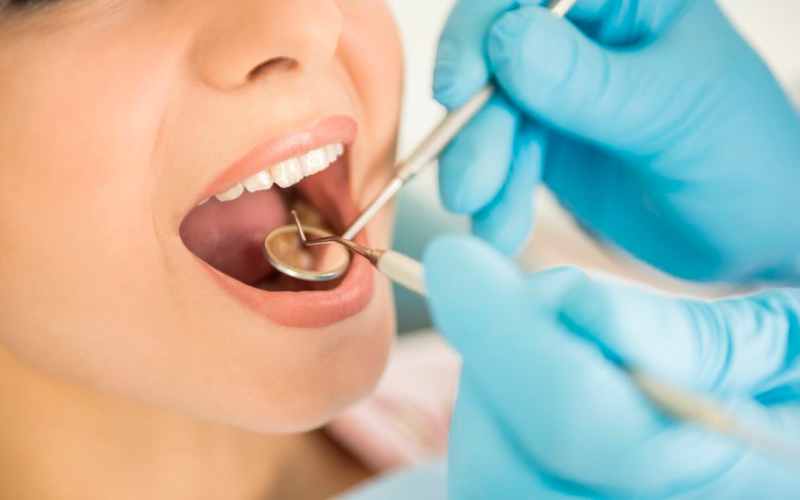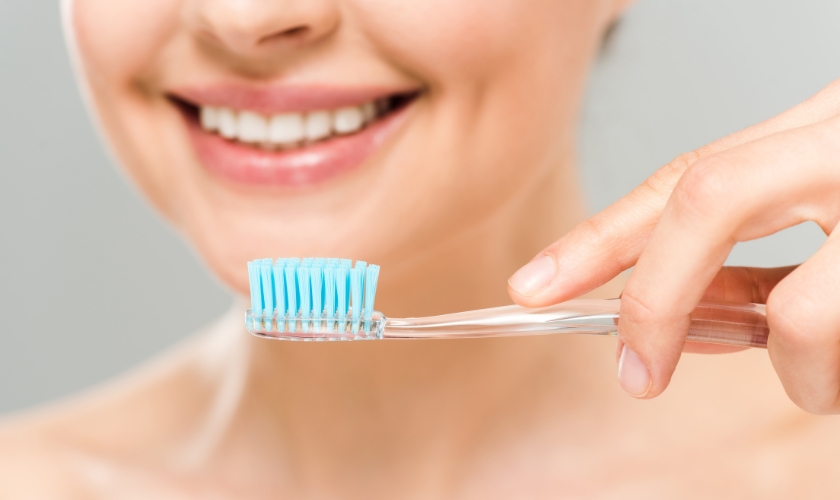The Chilling Truth: How Cold Water Affects Your Teeth

Ever sip on a refreshing glass of ice-cold water and experience a zing in your teeth? That jolt can be surprising, and it might leave you wondering: is cold water bad for my teeth?
The answer, like most things in dentistry, isn’t a simple yes or no. While cold water itself doesn’t directly damage teeth, it can trigger sensitivity in some people and potentially worsen existing dental issues. Let’s delve deeper into the science behind this “chilling” sensation and explore ways to keep your smile healthy, no matter your beverage temperature preference.
Understanding Tooth Anatomy
Before we explore how cold water interacts with teeth, let’s get acquainted with the basic structure of a tooth:
- Enamel: The hard, outer shell of the tooth. It’s the body’s first line of defense against decay and is remarkably strong.
- Dentin: A softer layer beneath the enamel. It contains tiny tubules that connect to the pulp, the innermost part of the tooth.
- Pulp: The core of the tooth, containing nerves and blood vessels.
These different layers play a crucial role in how we perceive temperature changes when we drink or eat.
The Dentin Dilemma: How Cold Triggers Sensitivity
Now that we understand the different parts of a tooth, let’s see how cold water interacts with dentin, the layer responsible for that zing you might feel.
The dentin layer contains microscopic tubes called tubules. These tubules are filled with fluid and extend towards the pulp, where the nerves reside. When you consume something cold, the fluid within these tubules rapidly contracts. This sudden movement stimulates the nerves in the pulp, triggering a short, sharp pain sensation we perceive as tooth sensitivity.
Here’s why some people are more susceptible to this discomfort:
- Enamel erosion: Over time, acidic foods and drinks or improper brushing can wear down enamel. This exposes the underlying dentin, making the tubules more accessible to temperature changes.
- Receding gums: Gum recession, where gum tissue pulls away from the tooth, can also expose the dentin and lead to sensitivity.
- Cracked or chipped teeth: Cracks and chips can create a direct pathway for cold to reach the dentin and irritate the nerves.
- Worn down fillings: Old or worn fillings can leave gaps that expose dentin to cold stimuli.
If you experience frequent or intense tooth sensitivity, it’s important to consult your Cheney dentist to identify the underlying cause and receive proper treatment.
Beyond Sensitivity: Other Cold Water Effects
While tooth sensitivity is the most common concern with cold water, there are other potential effects to consider:
Cracked or Chipped Teeth: Cold Water’s Unwanted Entry Point
Extreme temperature changes, from hot to cold or vice versa, can cause teeth to contract and expand slightly. Over time, this repeated stress can weaken teeth and contribute to cracks or chips. These cracks can become entry points for cold to reach the dentin and trigger sensitivity.
Here are some factors that can increase your risk of cracked or chipped teeth:
- Bruxism (teeth grinding): People who grind or clench their teeth are more prone to cracks and chips.
- Chewing on hard objects: Using your teeth to crack nuts, open bottles, or chew on ice can put undue stress on them.
- Age: Teeth naturally become more brittle with age.
- Large fillings: Large fillings can weaken the tooth structure.
If you experience a chipped or cracked tooth, consult your dentist in Cheney promptly to prevent further damage and potential complications.
A Chilling Habit? Bruxism and Tooth Sensitivity
Teeth grinding or clenching, also known as bruxism, can be a contributing factor to tooth sensitivity. The constant pressure exerted on teeth during bruxism can damage enamel and exposed dentin. Additionally, the muscle tension associated with bruxism can also lead to referred pain, which may feel like tooth sensitivity.
There are various treatment options available for bruxism, including mouthguards, relaxation techniques, and addressing underlying causes like stress or anxiety. If you suspect you might be grinding your teeth, talk to your Cheney dentist to discuss diagnosis and treatment options.
Does Cold Water Cause Cavities? Separating Fact from Fiction
While cold water itself doesn’t directly cause cavities, it can worsen sensitivity caused by existing decay. Here’s why:
- Tooth decay creates microscopic holes in the enamel, which can reach the dentin layer.
- When you consume cold beverages, the tubules in the exposed dentin are more likely to react, causing a sharp pain sensation.
Therefore, if you experience frequent sensitivity, especially to cold drinks, it’s important to schedule a dental checkup to rule out cavities and receive prompt treatment if necessary.
Keeping Your Cool: Minimizing Discomfort from Cold Water
Fortunately, there are steps you can take to minimize discomfort caused by cold water:
Tame the Temperature: Gradual Transitions are Key
- Avoid sudden bursts of cold: Opt for lukewarm or room-temperature water initially, then gradually transition to colder beverages if desired.
- Straws can be your friend: Using a straw allows the liquid to bypass your front teeth, minimizing direct contact with cold.
Desensitizing Toothpastes: Your Ally Against Sensitivity
- These toothpastes contain ingredients like potassium nitrate or strontium chloride that help block the tubules in dentin, reducing sensitivity.
- It’s important to use desensitizing toothpaste consistently for optimal results. Consult your dentist near Cheney for recommendations on specific brands or types.
Beyond Brushing: A Holistic Approach to Oral Care
Maintaining good overall oral hygiene practices can help strengthen teeth and gums, making them more resilient to sensitivity:
- Brushing twice daily with a fluoride toothpaste is crucial for removing plaque and protecting enamel.
- Flossing daily removes food particles and plaque from between teeth, promoting gum health.
- Regularly cleaning your tongue helps eliminate bacteria that can contribute to gum disease and sensitivity.
- Schedule regular dental checkups and cleanings for professional assessment and preventive care.
When Chilling Turns Concerning: Signs to See a Dentist
While occasional tooth sensitivity to cold water is relatively common, there are situations where it warrants a visit to your dentist:
Persistent Pain: Don’t Ignore It
If you experience sharp, persistent pain or discomfort that lingers after consuming cold water, it’s important to see your dentist. This could indicate a deeper issue like:
- Severe tooth decay: A cavity that reaches the dentin or pulp can cause significant pain.
- Inflamed pulp (pulpitis): Inflammation of the pulp due to infection or injury can be very painful.
- Abscessed tooth: An abscessed tooth is a serious infection that requires prompt treatment.
Early diagnosis and treatment can prevent further complications and alleviate pain.
Visible Damage: Cracks, Chips, or Gum Recession
If you notice any visible damage to your teeth, such as cracks, chips, or receding gums, consult your Cheney dentist for evaluation. These issues can not only worsen sensitivity to cold but also increase your risk of developing other dental problems.
Managing Underlying Conditions: Addressing the Root Cause
Certain underlying conditions can contribute to tooth sensitivity and make you more susceptible to cold water discomfort. These include:
- Gum disease: Gum disease can damage the tissues supporting your teeth, leading to exposed dentin and sensitivity.
- Receding gums: As mentioned earlier, receding gums can also expose the dentin and cause sensitivity.
- Sinus problems: In some cases, sinus issues can cause referred pain that feels like tooth sensitivity.
Chill Out and Smile On
Cold water, while refreshing, can trigger sensitivity in some people. By understanding the causes and implementing simple strategies like desensitizing toothpaste and gradually transitioning beverage temperatures, you can minimize discomfort. Remember, a strong foundation of oral hygiene and regular dental checkups are your best defenses for a healthy smile that can handle any temperature. So, sip on, smile wide, and enjoy the chill – without the ouch! Smile that can handle any temperature. So, sip on, smile wide, and enjoy the chill – without the ouch!
Frequently Asked Questions
No, cold water itself isn’t inherently bad for your teeth. However, it can trigger sensitivity in some individuals and potentially worsen existing dental issues.
If you experience significant discomfort with cold water, consider opting for lukewarm or room-temperature beverages. If you prefer a colder drink, use a straw to minimize contact with teeth.
Sugary or acidic cold drinks can contribute to enamel erosion and worsen sensitivity. Water remains the best choice for overall oral health.




